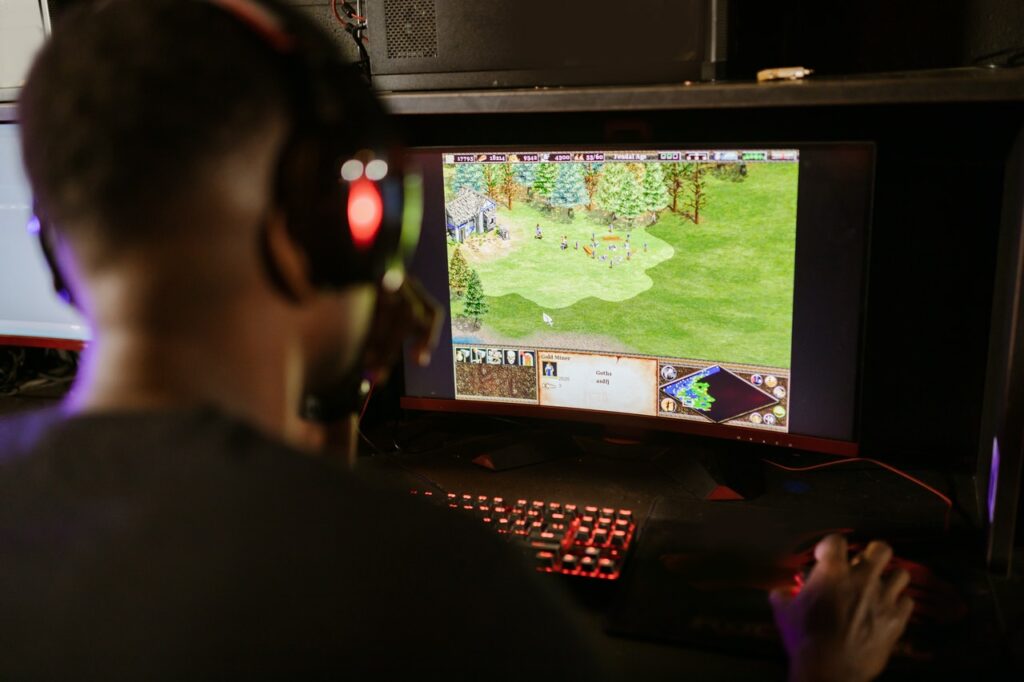
Gaming can be a problem in families because parents often think that children spend too much time playing and it becomes a source of conflict and arguments. Gaming can be a problem if it affects other areas of life, such as school, work, participation in social activities. However, in most cases, gaming has become a normal activity and almost 100% of all children play. Additionally, many adults also spend a lot of time on video games. Adults often play more on their phones, but this can also take up a lot of time and affect quality family time.
On this page, you can watch several videos we have made about gaming, which can be a good starting point for family discussions. You can also get some tips on what you can do to reduce conflicts in the family. There is also a manual where you can read more about video games and learn more about what kinds of games children play and what makes some children become addicted to video games. The videos have subtitles in different languages.
Digital Course on Video Game Addiction
In 2022, MiR received funding to create a digital course about video game addiction for parents. The course is designed for parents who want to learn more about how they can monitor and set boundaries for their children, but it is also suitable for employees who work with children who play a lot.
The course consists of 3 modules that cover 1. Facts and myths about video games, 2. The psychology of games, and 3. Regulation of gaming habits, which are further divided into lessons. Most lessons have a video that briefly explains what it’s about, and you can read more in detail if you are especially interested. There are also associated quizzes and assignments for those who want to test if they have understood what they have seen and heard.
The program is very simple and takes no more than 2 hours to complete, but you can also do it bit by bit when you have time.
Go to the course here.
Brochures
We have brochures in 10 different languages that can be downloaded from Mir’s websites or ordered. The brochures have been tested on families with immigrant backgrounds where we have received good feedback. Click here for materials in multiple languages!
For tips on how to talk about gaming with your children, click here.
Video resources
MiR has created several videos we use in working with parents to initiate discussions:
Are your children spending too much money on mystery boxes/loot boxes?
Diskusjonsspørsmål:
Do you remember anything from the video? Take a test here to see how much you remember!
You may have heard about loot boxes? Basically, a loot box is a package you buy without knowing exactly what’s inside, a kind of mystery box. Many children want Battle Pass if they play Fortnite.
In some games, you can improve your player with such boxes, like in the FIFA games, where some boxes contain very good football players. The problem is that you don’t know which players you’ll get.
Watch here to see why they can be addictive!
Is your child playing too much?
Diskusjonsspørsmål:
- Do you know which games your children play?
- Do you know what the game is about?
- Do you know if they are good or bad?
- Who do they play with?
- Do you know what age rating the game has?
- Do you ever play with your children?
Denne videoen ser på grensesetting og kan skape en diskusjon om hvordan du som foreldre setter grenser for barna når de spiller. Skaper grensesettingen mye konflikt? Kan du gjøre det på andre måter?
En kartlegging som medietilsynet har gjennomført viser at barna mener at foreldre involverer seg mindre i deres spilling enn i deres andre fritidsaktiviteter. Dette burde vi kanskje endre!
Den gode samtalen
Diskusjonsspørsmål:
- Kjenner du deg igjen?
- Kjenner du igjen andre?
- I filmen blir gutten med i en gjeng fordi han føler at moren ikke bryr seg. Tror du at det er realistisk?
- Hva tenker du om forskningen vi presenterte?
- Hva kan du endre i din hverdag?
Denne videoen handler om hvordan mobiltelefoner kan ødelegge for kommunikasjon i hverdagen. Vi kommer også med forslag om tips for hvordan man kan håndtere det.
“Mamma, jeg vil ha mat!”
Diskusjonsspørsmål:
- Har det skjedd at du har glemt tiden fordi du bruker sosiale medier eller spiller?
- Kjenner du noen som er hele tiden på telefonen sin?
- Hva kan voksne gjøre for å begrense sin egen mobilbruk?
Denne videoen viser hvordan det kan være når foreldrene også spiller. Bruk av mobiltelefon har blitt en så vanlig del av hverdagen at man ofte ikke tenker over hvor mye vi bruker den.
